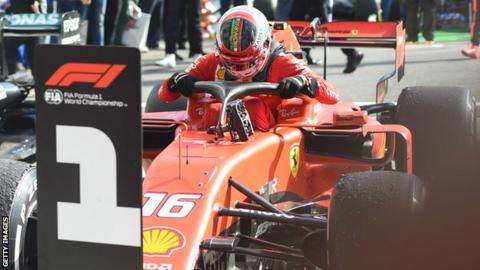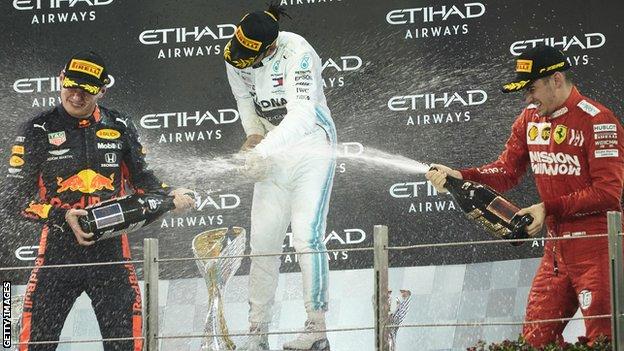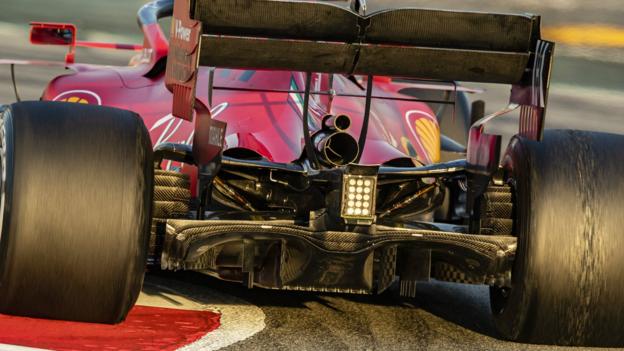
Formula 1 teams are considering next steps after some were left “shocked” and “angry” by the conclusion to last year’s Ferrari engine controversy.
Governing body the FIA said it had “reached a settlement” with Ferrari after an investigation into their 2019 engine.
Teams have expressed their unhappiness at what they see as an unsatisfactory and opaque decision.
They are considering their responses to the verdict.
No teams were prepared to express their views on the record, but some did so on condition of anonymity.
They are concerned that the FIA’s attempt to draw a line under the matter does not make it clear whether Ferrari’s engine was legal at all times last year or not.
- ‘New F1 season too close to call’
- F1’s new cars gallery
- Ferarri reject poor performance claims at 2019 US Grand Prix
A FIA statement issued on Friday said it had concluded a “thorough technical investigation” into the Ferrari engine and that “the specifics of the agreement (reached) remain between the parties”.
The statement added that “the FIA and Scuderia Ferrari have agreed to a number of technical commitments that will improve the monitoring of all Formula 1 power-units for forthcoming championship seasons”.
Teams believe fundamental questions are raised by the way the FIA has chosen to end the Ferrari investigation:
- Does the lack of punitive action against Ferrari mean that the car was legal at all times in 2019?
- If so, why not say so? Why the need for a “settlement”, and what was that settlement?
- What confidence can teams have in F1 if the FIA is not able to conclude a technical investigation without saying whether the car in question was legal or not?
Ferrari declined to comment beyond the specifics of the FIA statement. The FIA was not immediately available for further comment.
The issue arose during last season when rivals – particularly Red Bull and Mercedes – began to have doubts about the level of superiority of the Ferrari car in straight-line speed.
Discontent rumbled throughout much of the season and the issue came to a head at the US Grand Prix in October when the FIA issued a rules clarification in response to a detailed series of questions from Red Bull.

These centred on whether it was possible to interfere with the mandatory fuel-flow meter in ways that made it bypass the regulation limit of 100kg per hour.
The FIA clarification made it clear that any intervention with the mandatory fuel-flow meter that could lead it to exceed the maximum permitted fuel flow would be against the rules.
In F1’s complex turbo-hybrid engines, the fuel-flow limit works to promote efficiency and is effectively a ceiling on the amount of power an engine can produce.
It means teams cannot increase power simply by increasing the rate of fuel flow through the engine, and must do so instead via efficiency savings, in other words increasing the amount of power extracted from the available fuel by advances in the engine/hybrid system.
The FIA clarification was issued on the morning of qualifying in Austin, and later that day a run of six consecutive Ferrari pole positions came to an end. The team did not set a pole position in any of the remaining two races in Brazil and Abu Dhabi either.
Ferrari team principal Mattia Binotto said the two matters were not related, and that apparent differences in the car’s straight-line performance seen by rivals were caused by the team changing the way they ran it and adding more downforce and therefore drag.
